Learn All About Your Gut.
Your gut helps control everything from your weight to your immune system to your digestion. If you want to know more, you're in the right place.
Or take a quiz to see how much you know about the gut!
Just the Basics
New to the whole gut health thing? Here's what you need to know to get started.
What is the gut?
Your "gut" is your digestive system between the bottom of your stomach and your anus. When food leaves your stomach, it's in the gut until it comes out the other end.
Two very important parts of your gut that affect your overall health are...
- The gut flora. Gut flora are friendly bacteria that live in your gut. They don't make you sick.
- The gut lining. Also called the gut wall, the intestinal lining, and the intestinal wall. The gut lining controls what gets into your body (like important nutrients) and what stays out (for example, food that hasn't been broken down yet).
Your gut does more than digestion. The gut flora and gut lining affect...
- Weight and metabolism.
- Your immune system. A weak immune system, allergies, and many autoimmune diseases are connected to gut problems.
- Mood and mental health.
...among other things!
Taking care of your gut isn't just about what you eat. Some foods, probiotics, and other supplements can help with gut health. But getting enough sleep and managing your stress are just as important.
Glossary of important gut terms
Commensal bacteria: see gut flora.
Dysbiosis: a problem with the gut flora.
Epithelial cells: the cells of the gut lining.
Gluten: gluten is a protein found in wheat and other grains. Gluten can contribute to leaky gut.
Gut flora: the friendly bacteria that live in your gut and help digest your food.
Gut lining: the wall between your gut and the rest of you that determines what gets into your bloodstream and what doesn’t.
Gut microbiota: see gut flora.
Gut: the part of your digestive system between the bottom of your stomach and your anus.
Gut-brain axis: the two-way street (in the form of a neural connection up your spinal cord) connecting your gut to your brain. This is how your gut affects your mood and vice versa.
Inflammation: your immune system’s response to injury. As a one-time thing, there’s no problem with it, but if it’s constantly going on, it has dangerous consequences.
Leaky gut: Technically called abnormal intestinal permeability, “leaky gut” is when the wrong things are getting through your gut lining and into your bloodstream. It’s a major factor in autoimmune diseases.
Prebiotic: a supplement containing food for your gut flora.
Probiotic: a supplement containing beneficial bacteria.
Synbiotic: a combination of a probiotic and prebiotic supplement all in one.
Tight junctions: the connections between the epithelial cells lining the wall of the gut.
Learn in Depth
Browse by topic to see even more information about your gut and your health:
Why your health depends on your gut flora. This is a big-picture overview with links to more details.
What a gut irritant is and why you should care about avoiding them
"Leaky gut" - it sounds dumb, but it's actually a real thing!
How autoimmunity starts in the gut
How gut health and gut inflammation can affect Type 1 Diabetes
How gut-related autoimmunity affects obesity and Type 2 Diabetes
Why gut flora are so important for your immune system.
How seasonal allergies are related to immune responses in your gut
Chronic Fatigue Syndrome may be another disease affected by immune/autoimmune reactions in the gut.
The gut-brain axis means that your gut health and your mental health affect each other.
Gut health is a big part of brain fog
Probiotic foods help support healthy gut bacteria
Fiber is important, but it's not a one-stop shop for gut health!
Bone broth and why it's so good for your gut
Gut irritants are foods (or other things, like some kinds of painkillers) that damage the lining of the gut. Gut irritants include grains, legumes, excessive Omega-6 fats, alcohol, and more.
Fix your Digestion
Recovering good gut health is hard and takes a lot of patience and tinkering. Even figuring out what's wrong can be tough.
What's Wrong with your Gut?
Symptoms: constipation, diarrhea, and/or gas and bloating. One or more of these can mean any one of several different problems. Here's a chart showing some of the most common gut-related problems so you can match your symptoms to a list of suspects.
Steps to Gut Healing
1. Eliminate
Eliminate problem foods that can irritate the gut and cause inflammation.
Wheat and other grains.
Industrial fats.
Anything you're personally sensitive to.
Lactose/dairy foods
High-FODMAP foods (what's that/learn more)
Foods high in fructose (what's that/learn more)
Coconut (learn more)
Eggs (learn more)
Nuts (learn more)
High-histamine foods (what's that/learn more)
If eating a lot of vegetables is giving you gut problems, reduce to the amount you can eat comfortably and slowly work up from there, focusing on cooked vegetables rather than raw. Here's how to make vegetables easier on your stomach.
2. Support
Support your digestion while you heal.
Sleep. Sleep is arguably as important as food for your gut health.
Move regularly. Exercise actually has a documented beneficial effect on your gut flora. Walking and gentle swimming totally count.
Drink bone broth. Here's how to make it, and here's why.
3. Repair
Repair your digestion and regain your gut health. Here's a look at some supplements and what they do. Most people won't need all of these; it really depends on what your specific problem is.
Whatever your doctor gave/prescribed, if applicable.
Probiotics and probiotic foods: help restore healthy flora to the gut. If you take a supplement, be very picky about the quality. If you have histamine intolerance or SIBO, probiotics may do more harm than good.
Digestive enzymes can help with a "brick in your stomach after eating" feeling, if that's an issue.
Prebiotics and prebiotic foods may help, but they can also hurt, especially in people with SIBO, FODMAP intolerance, or IBS. Start slow.
Psyllium husk and other fiber supplements are OK as band-aids but don't solve the real problem.
Weight Loss Starts in the Gut
Gut flora control how many calories you absorb.
If you eat 100 calories of food, you don't necessarily get 100 calories of energy. The energy you actually get depends on your gut flora.
Obesity is marked by gut flora that absorb more calories. Obese people's gut flora are better at getting every last calorie out of their food. Thin people have gut flora that "waste" more calories, which helps them stay thin.
Gut flora regulate insulin sensitivity.
"Insulin sensitivity" is basically how well your body handles carbs. Most people with weight problems are insulin resistant, meaning that they don't handle carbs well.
In obesity, inflammation in the gut contributes to insulin resistance. So gut problems make it harder to digest carbs, which causes problems like high blood sugar, sugar cravings, and weight gain.
Gut flora control sugar cravings.
According to the research we have right now, one very significant factor in sugar cravings is negative mood (grief, stress, anger, boredom, etc.). Gut health affects mood through the gut-brain axis, and poor gut health can negatively affect your mood.
Gut flora also affect your taste. If you have a lot of bacteria that feed on sugar, you'll crave sugar.
If you want to have fewer sugar cravings, take care of your gut.
Fixing your gut = easier weight loss.
There's evidence that simple diet changes and possibly gut-supporting supplements can help modify these responses and make it easier to lose weight. See more in the Fix your Digestion section.

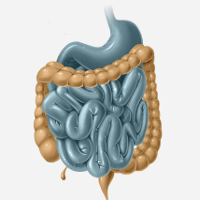

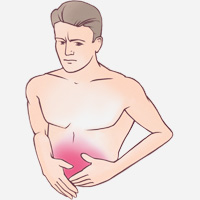
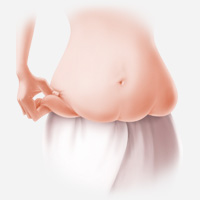




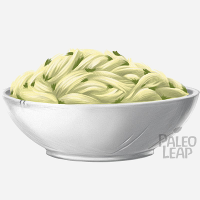
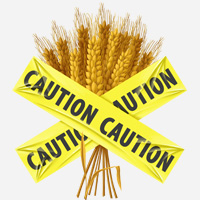
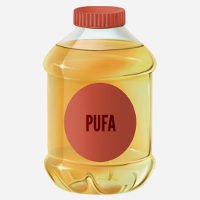

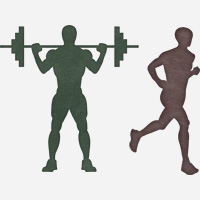
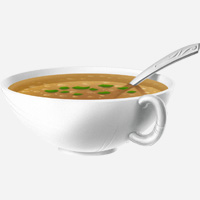


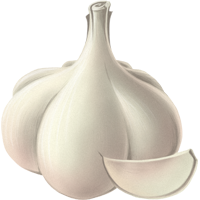
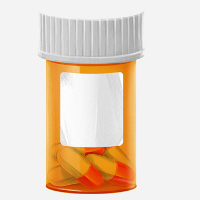




Leave a Reply